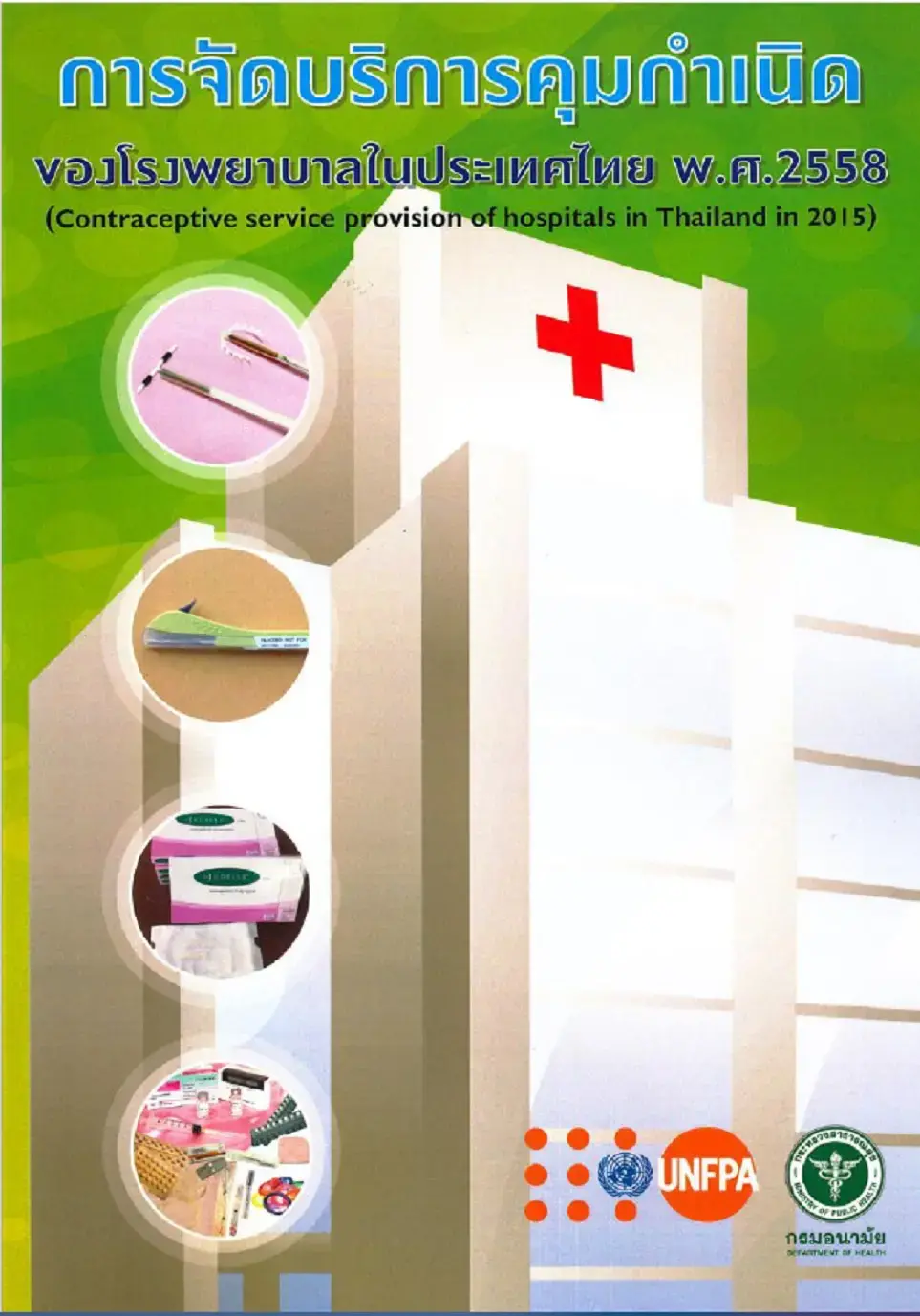The study aimed at exploring contraceptive services offered at both governmental and private hospitals for all types of health insurance coverage; and examining the results of contraceptive services provided by the hospitals before and after participating in the Prevention of Repeat Teenage Pregnancy Programme.
The study findings revealed the followings:
1) For policy perspective, it was found that the provision of contraceptive services to all clients both under the Universal Health Coverage and the Prevention of Repeat Teen Pregnancy Programme were good policies that could help reduce problems of unplanned teen pregnancy and ensure equitable access among clients to the service.
2) Regarding contraceptive service provision, the study showed that there were such services available for all clients but not all types of contraception. This varied depending upon the contraceptive procurement of each hospital and clients’ needs.
3) For contraception supplies, most hospitals self-procured supplies by directly purchase from pharmaceutical companies based on the hospital committee’s decision. The disbursement of semi-permanent contraceptive supplies under the Prevention of Repeat Teenage Pregnancy Programme was well operated. Seventy-five point four percent of hospitals had not encountered any problems using the e-claim system.
4) A number of challenges and gaps were identified which included unawareness of some clients concerning their rights to health care services; lack of contraceptive information among teenagers; and not giving priority to contraceptive procurement of some hospitals’ administrators.
Based on the above results, some recommendations were outlined:
1) Semi-permanent contraceptive services for clients aged 20+ should be disbursed through e-claim the same as the prevention of repeat teenage pregnancy programme;
2) there should be a satisfaction evaluation of teen clients regarding service provision in order to improve/extend the programme;
3) educational materials should be also developed in various formats, multilanguage, and with up-to-date information; and
4) different means of communication should be identified with more focus on social network which are popular among and accessible to the public particularly teenagers.


